162019-07 Healthy China Initiative 丨 Press Conference on Proper Diet InitiativeSource:
“Interpretation of the Proper Diet Initiative under “Healthy China initiative”
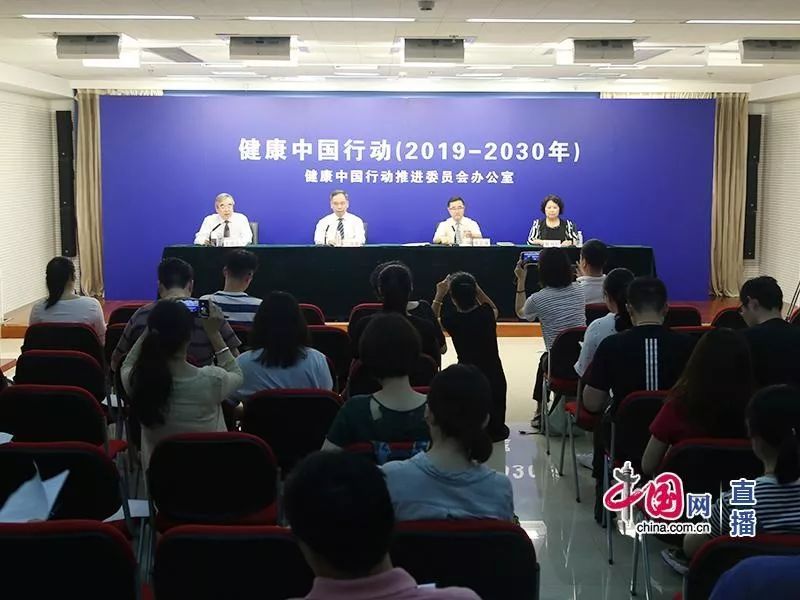
15:00 PM July 17th , 2019
Press Conference at Press Conference Hall, Commission Office Building 2
Interpretation of the Proper Diet Initiative under “Healthy China initiative”

Mao Qun’an, Director-General of the National Health Commission’s Planning Department
Good afternoon, friends from the media! First, on behalf of the Promotion Committee Office of Healthy China Initiative, I’d like to express our thanks for your reports on the documents for “Healthy China initiative”. Many friends studied those documents carefully to conduct in-depth interpretation of some hot spots and focus issues, which is very important in helping the public learn about the initiative. According to the plan, today we are going to have the second conference on the topic of “proper diet initiative”. We are very glad to invite Zhang Zhiqiang, the deputy director-general of the National Health Commission's food department, Ding Gangqiang, Director of the Nation Institute for Nutrition and Health, Chinese Center for Disease Control and Prevention and Yang Yuexin, President of the Chinese Nutrition Society to join us.
In the Opinions of the State Council on Implementing the Healthy China initiative and relevant documents, the State Council proposed 15 special campaigns to intervene in health influencing factors, protect full-life-cycle health and prevent and control major diseases, focusing on key influencing factors, diseases and people. And proper diet initiative is an essential part in “intervene in health influencing factors”.
As we know, the main health indicators of our residents are generally higher than the average level of people in upper-middle-income countries. However, with the process of industrialization, urbanization and population aging, the problem of disabled and disease burden caused by the main four chronic diseases such as cardiovascular and cerebrovascular disease, cancer, diabetes and chronic respiratory disease become increasingly prominent. Among affecting factors in those diseases, a poor diet has close relationship with healthy risk. Today we hold the conference so as to make you have a better understanding after our officers and experts explain the content on proper diet in the Healthy China initiative. First of all, please invite Zhang Zhiqiang, the deputy director-general, to introduce the proper diet.
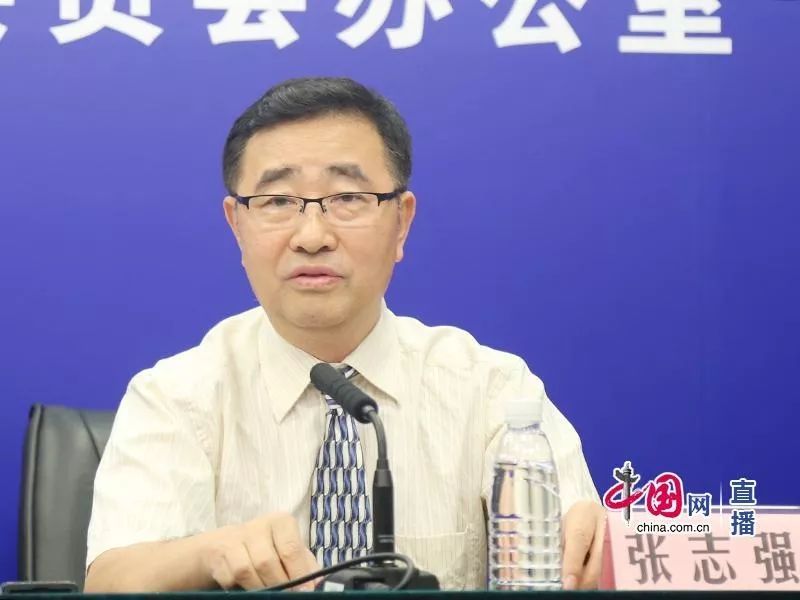
Zhang Zhiqiang, the deputy director-general of the National Health Commission's food department.
Thank you. The Opinions of the State Council on Implementing the Healthy China initiative Has made it clear that proper diet is the foundation of health. The research shows that the poor diet, with a high intake of salt, oil and sugar in special, causes most health risks among people. And it may also lead to the incidence of diseases like obesity, diabetes, hypertension, stroke and coronary heart disease.
For these health risks among our nationals, the Healthy China initiative proposes the proper diet initiative. The Initiative points out that the proper diet initiative means enhancing the guidance on nutrition and diet for all people; focusing on encouraging the whole society to reduce salt, oil and sugar, including the food industry, collective canteens of enterprises and institutions and families; government should formulate and implement relevant regulations and standards, and conduct nutrition intervention for key populations in poverty-stricken area. It states clearly that by 2022 and 2030, the growth rate of adult obesity will be continuously lowered, growth retardation rate of children under 5 years old will be under 7% and 5% and anemia rate under 12% and 10% respectively, the energy contribution from fat for adult will be increased to 32% and 30% respectively.
Regarding its goals, main indicators and actions and with a focus on the major nutrition and health problems as well as unreasonable dietary behaviors, the proper diet initiative has requirements for government, society and family member correspondingly on “why we need proper diet, what is proper diet and how to make a proper diet”. What’s more, it highlights the idea that everyone should be responsible for his/her proper diet and calls on all civilians to take acts.
For main problems and key populations, the special initiative for proper diet puts forward corresponding requirements respectively:
First, specific dietary guidance and goals were respectively given for special groups, such as overweight and obese people, malnourished people with anemia and emaciation, pregnant women and infants and young children.
Second, for the growing problems among our residents, such as high intake of salt, oil and sugar, excessive sugary beverages for children and adolescents and intake of added sugar, the plan laid out the requirement of “reduction for salt, oil and sugar”: Firstly, the government should formulate and implement relevant standards so as to give full play to the alerting role of food nutrition labels; Secondly, to increase science education and guidance for the whole society; Third, to encourage and provide guidance for the food industry regarding the nutrition-targeted transformation, to create and rate the healthy restaurants, canteens and nutrition schools as well as conducting the operating procedure for nutrition in collective dining; Fourth, to focus on the guidance for family about dietary making and consuming behavior of reducing salt, sugar and oil, and to promote the gadget like limited salt spoon and oil pot for proper diet in family.
Third, to give full play to the role of various professional teams by researching and implementing the system of staffing dietitian, which means staffing dietitians in collective catering units like kindergarten, school, elderly care institution and hospital and nutrition coach at the community level, to make the best use of medical institutions and doctors to enhance clinical nutrition.
With the National Nutrition Plan (2017-2030) issued by the State Council in 2017 together, the proper diet initiative made by the State Council this time will play an important role in providing guidance to nutrition and proper diet at the country level in the next decades or so. We will fully mobilize the enthusiasm and creativity of the whole society to continuously promote people’s ehaviors of taking a proper diet and make unrelenting efforts in fully implementing the Healthy China strategy great so as to improve the health level of for all Chinese residents. Thank you for all!

Thank you for your introduction. Next part is answer-and-question. As usual, please introduce the media you are from before raising questions. If you have any question, please raise your hand.
Reporter from Nanfang Metropolis Daily
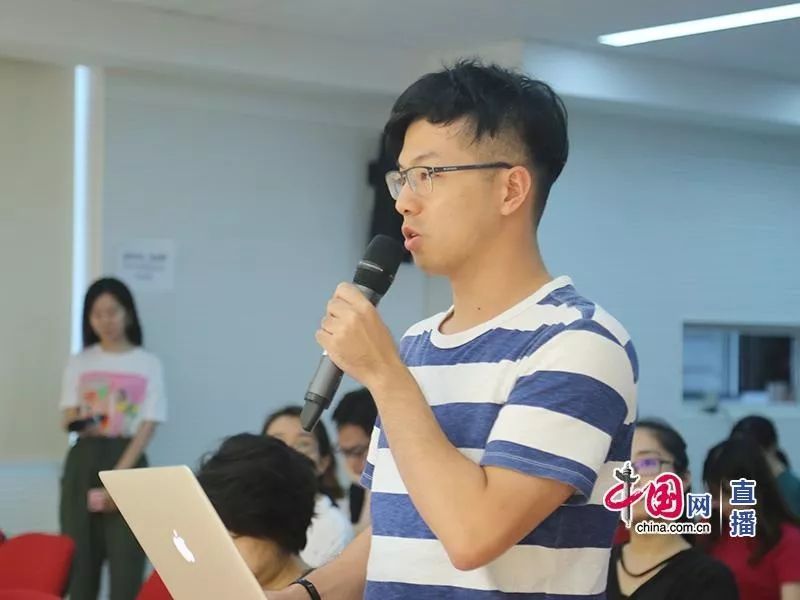
On diet, we call for people to control the salt, oil and sugar, but the raised goal has not been realized smoothly even after many years. I’d like to ask you about how to realize this goal by the Healthy China initiative? Do you have confidence? And I have noticed that the initiative make reference to accelerating the formulation of standards and limiting the production and sales of food high in sugar. How will it affect the food industry and the public?
Ding Gangqiang, director of the Nation Institute for Nutrition and Health, Chinese Center for Disease Control and Prevention
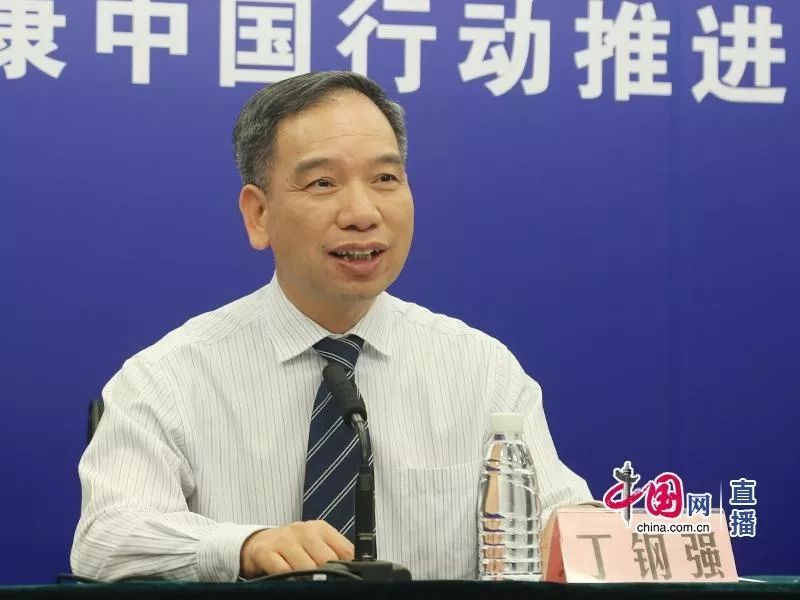
Your question is very important. In fact, the three reductions of salt, oil and sugar is a key point in this special initiative for proper diet, which has made it clear that by 2030, the per capita daily salt intake is no more than 5 grams, adults’ daily edible oil intake less than 25-30 grams and the per capita daily added sugar intake is no more than 25 grams. The initiative means:
First, to push the normalization of publicity and education in nutrition and health sciences and encourage the whole society in participating activities like National Nutrition Week and the “three reductions and three healthy activities”, which means reducing the intake of salt, oil and sugar while promoting the oral health, weight health and bone health.
Second, to promote the use of “three-minor-items” which includes limited salt spoon and oil pot and waist measuring tape and increase the percentage of these items in household as well as encouraging the professional industry organizations to guide the family to use them correctly
Third, to research and perfect the packaging standards of oil, salt and sugar and mark the relevant information such as the recommendation on the amount of daily intake of oil, salt, sugar out on the outer packaging. Shops (supermarkets) should be encouraged to set up counters for food with low-fat, low-salt or low-sugar.
Fourth, to advocate the food producers or marketers should replace the cane sugar with natural sweet substances and sweeteners meeting the food safety standards. They should scientifically reduce the content of cane sugar in processed foods. The government should encourage the production and sales of low-sodium salt and enhance promotion with the guidance from experts. It should be done well that the work of providing early warning for those people (workers under high-temperature, heavy manual laborers, people suffered from renal dysfunction, hypertension patients taking antihypertensive drugs and others not suitable for high potassium intake) who should be careful with taking low-sodium salt. The government should guide enterprises in combining usage control measures with the production and sales of table salt and cooking oil (such as adding a free 2-grams spoon inside the salt package, producing oil pots with limited capacity or scale and so on) and encourage localities where conditions permit to pilot such projects.
On sugar reduction, the initiative has mentioned that first, the government should accelerate the formulation of standards restricting the production and sales of food high in sugar while promoting the production and consumption of food with low or no sugar through increased publicity.
Second, the government should accelerate revising the general rules for nutrition labeling of prepackaged foods and add the mandatory identification of cane sugar and other sorts. To help consumers choose healthy foods quickly and intensify the supervision and management for nutrition labeling of prepackaged foods, it should also encourage the enterprises to make the claims of “low sugar” or “non-sugar” as well as applying the Front-of-package (FOP) to the food labeling. What’s more, the government should research and formulate the nutrition operating procedure about collective meal for special people and pilot the adding of the "sugar" logo in food and beverage.
Third, the government should formulate the guidance on the limitation of the cane sugar intake for children as soon as possible and advocate people drinking beverage with natural sweet substances and sweeteners. Consumers ought to be encouraged in reducing the intake of cane sugar. Besides, the food producers or marketers should be supported to replace the cane sugar with natural sweet substances and sweeteners meeting the food safety standards. They should also scientifically decrease the cane sugar in processed foods. Urban people with high sugar intake shall be advocated to reduce their consumption of beverages and sweets with cane sugar and choose food and beverage with natural sweet substances and sweeteners instead of cane sugar.
Mao Qun’an, Director-General of the National Health Commission’s Planning Department.
This question has been asked for many times and we have publicized the control of salt, oil and sugar time after time over these years. How about the effect? Let me say something. First, effectivity. Many families have made improvement after our publicity. Second, changes. Both our country and others have difficulties in changing people’s ietary habit especially. For this only, it may take more than a decade to achieve our expected goal. What I want to add is that we may take both changing life behaviors and adopting a healthy lifestyle as too simple. It is impossible for people to resolve the problems only after learning about the experts’ advice or receiving a limited salt spoon and an oil pot. Why we advocate people to take actions? To achieve an obvious outcome, not only paying attention to the carrying capacity of salt spoon or the convenience of oil pot, but we also should focus on how to make people know about the suitable intake and implement the advice at anywhere necessary and some measures must be taken. It is as the same as advocating other healthy lifestyles. I remembered that we advocated people to take a walk in the discussion a decade ago. It is only after 10 years of publicity when people get used to the lifestyle of walking or running. We should pay attention to this. We are more worried than you and I wish that this goal can be achieved overnight. However, I know we still have a long way to go and the work will take long. This initiative will last for more than a decade and we must implement these actions to every administration, family, school and institution with a practical and careful attitude. That’s all.
Reporter from the magazine China Health Human Resources

I noticed that the document mentioned about the encouragement of staffing dietitian to the collective catering unit like hospital and enhance clinical nutrition. Nowadays, how is the status quo of clinical nutrition in China? Can clinical nutrition meet the needs of patients? Thank you.
Yang Yuexin, President of the Chinese Nutrition Society
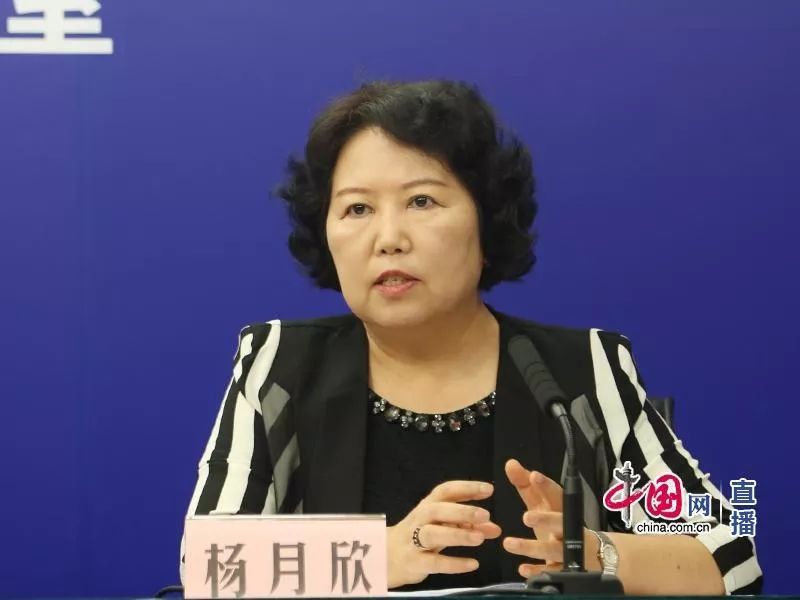
Compared with the past, there has been a great improvement in providing clinical nutrition in China. Basically speaking, all grade III level-A hospitals have the department of nutrition and the same for most grade II level-A hospitals. However, it is very difficult for hospitals with a lower grade to set up the department. The importance of clinical nutrition lies in non-medicine intervention and the guidance for patients at a convalescence stage. Nowadays, a good diet plays a crucial role in treating with many chronic diseases altogether with medicine and dietitian may also be very important. In the future, with the guidance of this document, we may do a lot of work in talent training and the system of dietitian to catch up with other developed countries.
Reporter from the magazine China Hospital CEO
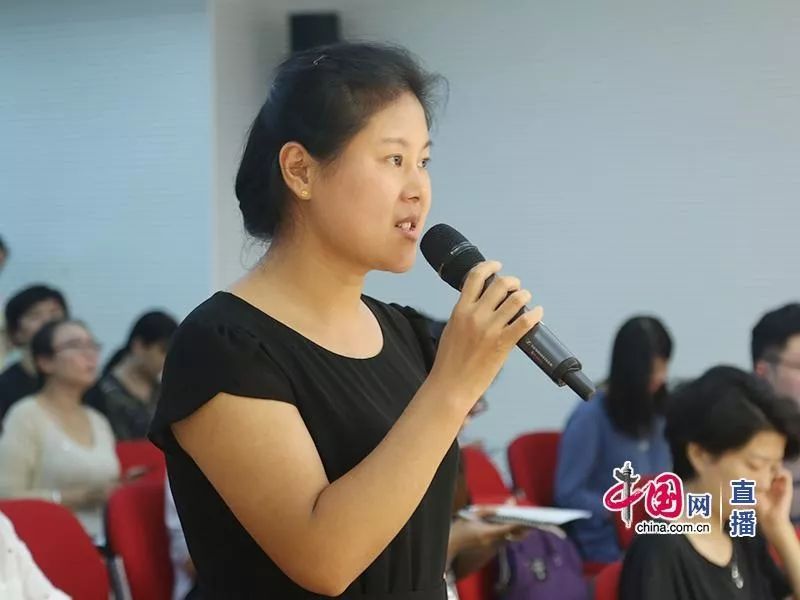
My question is about the “three reductions”, because the reduction of salt, oil, sugar has been proposed for some time, and it is mentioned in this initiative. What kind of specific measures will be taken to realize such a goal? Thank you.
中Ding Gangqiang, director of the Nation Institute for Nutrition and Health, Chinese Center for Disease Control and Prevention

We talked about this just now. We will advance our work in four aspects. Director-General Mao added some words just now. The monitoring data show that the "three reductions" are very effective during the activities. Take the salt consumption as an example, more than a decade ago, the consumption of salt per capita throughout the country was about 11 grams. But the figure has been reduced to 10.5 grams by 2012. Recently, another monitoring has been done, and the statistics has not been released yet, but it is probably that the figure will be about 10 grams. Although it is not long before we entered the second phase of action on the healthy lifestyle for the "three reductions", we have achieved certain results including the use of limited salt spoon in salt reduction by taking measures like publicity and education. Next, we will continue to promote the work regarding these four aspects in the initiative. First, popular science education activities will be normalized. Second, we will promote the use of “three-minor-items” including limited salt spoon and oil pot and waist measuring tape. Third, we will research and improve the packaging standards for salt, oil and sugar. The recommendation for reasonable people’s daily consumption of oil, salt, sugar and other relevant information will be indicated on the outer packaging. This is for everyone so that they can know about the content of salt and oil when selecting the foods. Fourth, we will advocate food producers and marketers to use some alternatives meeting the food safety standards. For example, cane sugar is not necessary and we can use other additives to supplant it. All these four aspects have been proposed specifically in the initiative.
Zhang Zhiqiang, Deputy Director-General of the National Health Commission’s Food Department

I have something to say about the “three reductions”. Both the initiative and the National Nutrition Plan (2017-2030) issued by the General Office of the State Council in 2017 request all the enterprises in food production and marketing to take actions. So we need to focus on standards to realize the “three reductions”. To be more specific, what are standards? First, we must adopt mandatory standards within the framework of Food Safety Law of the People’s Republic of China. As we know, it is explicitly stipulated in the Food Safety Law that the food must be nontoxic, harmless and compliant with reasonable nutritional requirement. It also has requirements for nutritional ingredients and the usage of oil, salt and sugar in staple and supplementary food dedicated to infants and other specific populations. Second, the Law stipulates that we must have standards for nutrition labels and have them play a special role of alerting people for nutrition. Now the Chinese Nutrition Society is working on revising the nutrition standards so as to improve these mandatory standards and realize the goal of the “three reductions”.
Besides, there are voluntary standards we are formulating, which call for the advocation and participation by the government and society respectively to push the development of food industry, including the health-centered work in catering industry and collective canteens. Although it is voluntary, we will mobilize the whole society to push the development of nutritional restaurants from the perspective of market because we hope all residents to have their meals at these nutritional restaurants in the future. What the nutritional restaurants do is the “three reductions” and we are working on the standards that enable people to distinguish the food with low salt and oil from other foods. The initiative is comprehensive because we not only take the method of health education and promotion in the past but also mobilize the positivity of the enterprises, which is very important in nutrition supply, to implement the relevant standards and realize the “three reductions” on their own. Thank you.
Reporter from Health Care Times
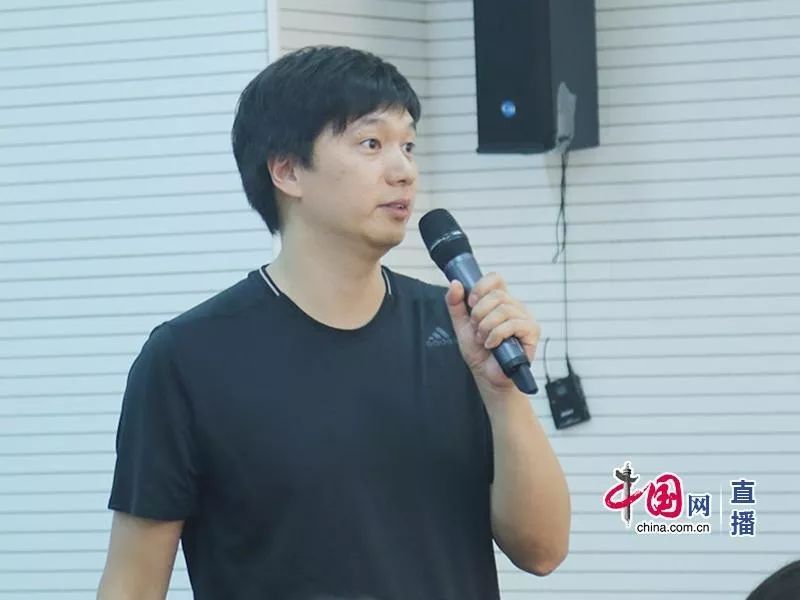
What are the major nutrition problems in our country now?
Ding Gangqiang, Director of the Nation Institute for Nutrition and Health, Chinese Center for Disease Control and Prevention
Nutritional problems are also health problems of common concern. In recent years, the nutrition and health status of Chinese residents has been improved significantly, but we still face problems such as the coexistence of malnutrition and overnutrition and the frequent occurrence of nutrition-related diseases. A survey in 2012 showed that the per capita daily salt intake of Chinese residents was 10.5 grams (The recommended figure of the WHO is 5g); the per capita daily edible oil intake of Chinese residents was 42.1 grams (the recommended standard by the Chinese Food Based Dietary Guidelines (hereafter referred to as the Dietary Guidelines) is 25-30 grams per day); The proportion of energy provided by residents’ dietary fat was 32.9% (the upper limitation recommended by the Dietary Guidelines is 30.0% ). At present, the per capita daily intake of added sugar in China is about 30 grams and we should pay great attention to the problem happened in children and adolescents. A survey in 2014 showed that for children and adolescents between the ages of 3 and 17 who often drink beverages, they got more than 5% of the total energy by the added sugar in the beverages. And this rate for urban children was much higher than rural ones and still on the rise (The WHO recommends that the daily intake of added sugar per capita should be less than 10% of the total energy and encourages people to control this figure below 5% or less than 25 grams). As a result, the problems of overweight and obesity has been increasingly prominent. Compared with the figures in 2002, in 2012, the overweight and obesity rate of adults aged 18 and above have increased to 30.1% and 11.9% by32.0% and 67.6% respectively; the overweight and obesity rate of children and adolescents between the ages of 6 and 17 was 9.6% and 6.4%, which had doubled and tripled respectively compared with the figures in 2002. Meanwhile, from 2010 to 2012, the malnutrition rate of Chinese adults was 6%; In 2013, the stunting prevalence of children under 5 years old was 8.1% and the anemia prevalence of pregnant women, children, and the elderly was still high. The lack of micronutrients such as calcium, iron, vitamin A and vitamin D still existed, and the intake of dietary fiber was obviously insufficient. Therefore, the nutrition problems in our country still needs to be further resolved. We need to improve health through making publicity and changes in lifestyle. Thank you.
Reporter from China Food Newspaper
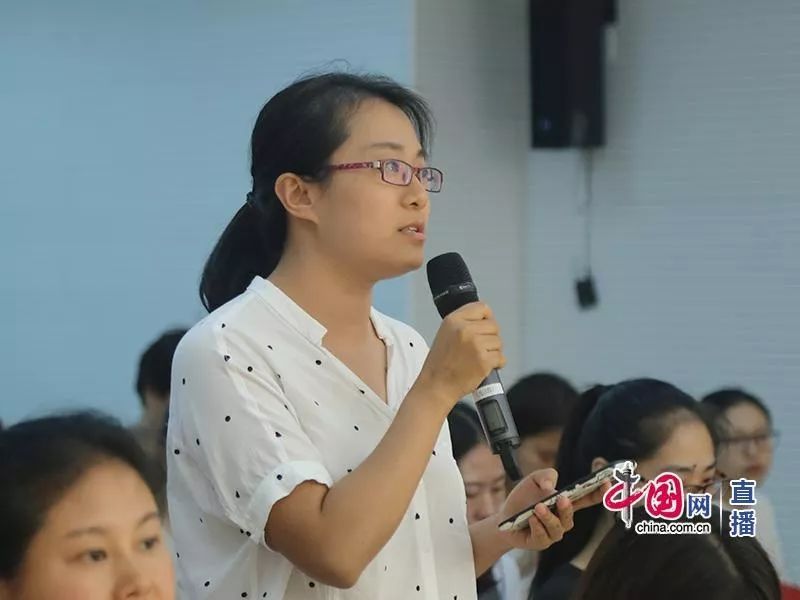
I have two questions. First, student meals. In China, many primary and secondary schools have already offered students nutritious lunch. However, there are still many schools unable to provide lunch for children due to many restrictions. They can only get lunch from parents or some pupil restaurants. What I want to ask is that is there any plan to provide lunch for all primary and middle school students? Or how to offer nutrition guidance and intervention to the children who cannot have meals at school? Second, nutrition labeling. We know that nutrition labeling is very important in this initiative. Please tell us how the nutrition labeling in China is managed currently? Next, how do you plan to raise the consumer awareness about nutrition labeling? Thank you.
Zhang Zhiqiang, Deputy Director-Deneral of the National Health Commission’s Food Department
Your first question is about nutritious lunch at school and nutritious meals for student, the State Education Commission of the PRC is in charge of this.
Yang Yuexin, President of the Chinese Nutrition Society

Nutrition labeling means providing consumers with nutrition information on food packaging. Our country has started the work in 2007 with a period of voluntary implementation for 5 or 6 years. It was turned into mandatory in 2013. I think it has played a big role for the past years. First of all, the nutrition label. The mandatory label must be listed, which includes energy and four core nutrients, namely protein, fat, carbohydrate, and sodium. In addition, there are also claims of nutrition, function, and content. That’s how it can play a major role in helping consumers when buying food. First, it may give consumers the right to know. When you buy something, you will not only know where it is made from but also know the weight and ingredients. Second, it may guide the production enterprises. Because of the nutrition labeling will make the manufacturer consider ingredients when producing food. The ingredients must be labeled so as to inform consumers. So it is also a measure to keep the enterprises upgrading their products. Therefore, we have done many surveys over the years. More and more consumers will have a look at the labeling when buying food and it has been a kind common sense for people to know about nutrition from the label.
At present, the revision of the second edition of nutrition labeling is in progress. It has been almost two years. We have already made a first draft. This revision is more in line with the needs of the times, including the needs of the "three reductions" and people’s health.
In addition, why is nutrition labeling so important in proper diet? As we know, packaged food has gradually been common in our lives. What the salt, energy, sugar, and oil mean is not only a direct impact for health, but more about culture. It is a kind of food culture that represents spicy, salty, sweet, and high-energy. It can be transmitted from generation to generation. Nutrition labeling has a role of promoting nutrition and health so that all generations can enjoy health. This food and nutrition culture can take root at the heart of the people
Reporter from the China. com.cn
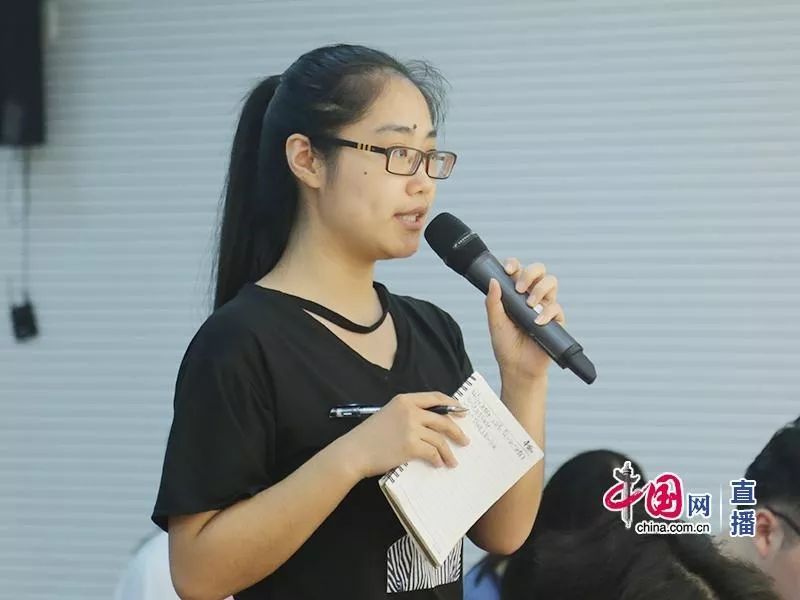
The "Healthy China Initiative" proposed to implement the National Nutrition Plan comprehensively, which was released on June 30, 2017 and had been implemented for more than two years. What progress has been made? What has the National Health Commission done? Thank you.
Zhang Zhiqiang, Deputy Director-General of the National Health Commission’s Food Department
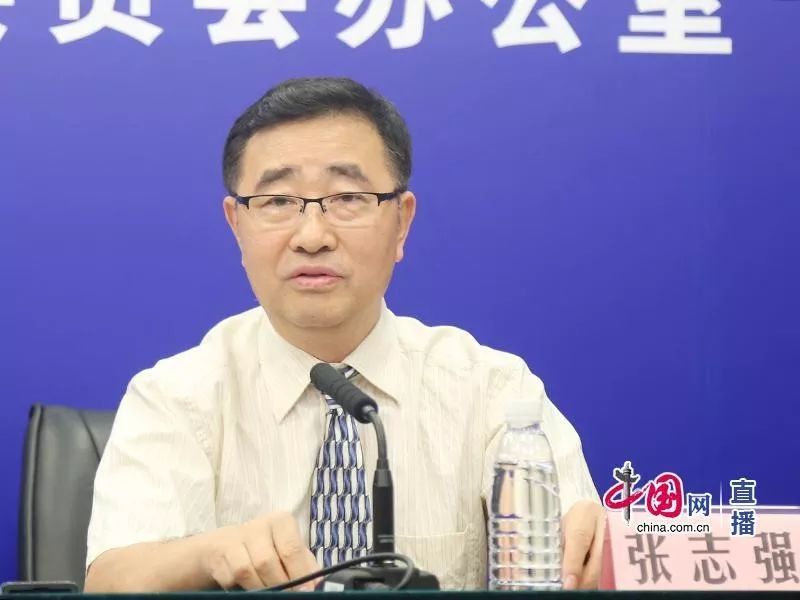
In June 2017, the General Office of the State Council issued the National Nutrition Plan. At the beginning of this year, the National Health Commission, under the guidance of the General Office of the State Council, and 17 other departments established the National Committee on Nutrition and Health Guidance, representing the start of implementing the National Nutrition Plan. At the same time, they also worked out the working rules for the Committee. Each department has its own responsibility. We must establish a working mechanism and deliver document to the local government to set up a National Committee on Nutrition and Health Guidance at local level and fully implement the National Nutrition Plan. To promote the implementation of the "Plan", our committee also took the leading role in formulating the " Key Tasks for National Nutrition Plan in 2019 " and we took comprehensive consideration of the related key projects about seven strategies and six action plans in the Plan. In terms of four aspects including improving the nutrition standard system, enhancing nutrition service capabilities, innovating the nutrition industry system, and promoting poverty alleviation in nutrition, 12 central missions and 61 specific tasks have been clarified and carried out across the country.
This year is a critical stage for us to lay a solid foundation, expand the system, and improve the pattern on implementing the National Nutrition Plan. All relevant departments and localities are carrying out the plan from the following four areas we just mentioned.
First, the formulation of standards. We have talked a lot about nutrition labeling standards, which are norms for healthy-centered restaurants and canteens and nutrition operation on collective meal. They also include the monitoring and evaluation of the nutritional and health status of infants and young children, diseased people and the elderly. The whole set of standards has been fully promoted this year.
Second, the construction of the nutritional capacity system. In addition to the establishment of the National Committee on Nutrition and Health Guidance at all levels and regions, according to the National Nutrition Plan, we are also trying to create 3 to 5 regional platforms for nutritional innovation and 20-30 special key laboratories for nutrition at ministerial and provincial-level in China.
Third, the innovation of the nutrition industry. We have now worked with industry associations from the food industry, including the authorities, on making some arrangements for industrial transformation on nutrition. Of course, more enterprises take the initiative to follow the "National Nutrition Plan", especially the "Healthy China Initiative" and seek for industrial transformation. As a result, after implementing the whole set of measures, most enterprises have been taking various methods to realize the transformation of their products and the "three reductions."
Fourth, the promotion of poverty alleviation on nutrition. Nutrition intervention has been incorporated into the working mechanism of poverty alleviation on health.
Generally speaking, the year 2019 is very important and critical for implementing the National Nutrition Plan comprehensively. Next, we are going to do research on further implementation of the National Nutrition Plan before October, 2019. We expect more support from the media. Thank you.
Reporter from the CNR News
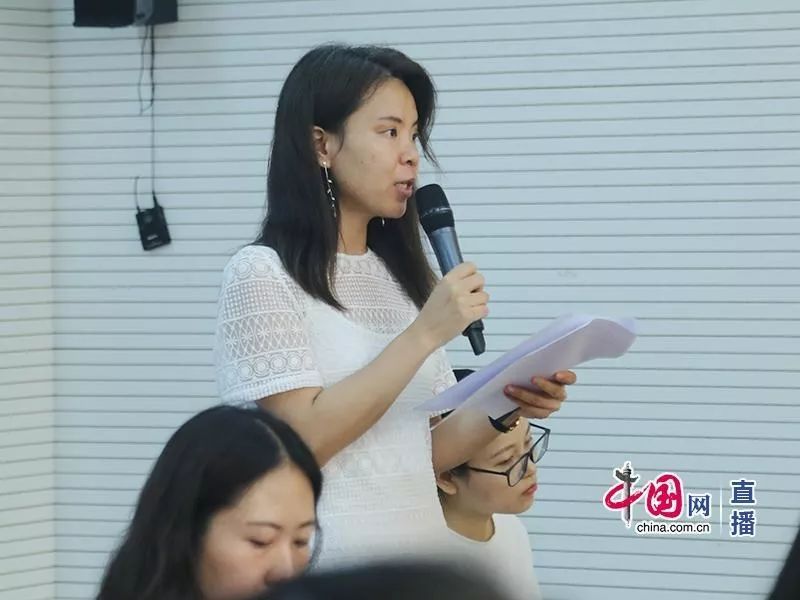
Before, some reporters have mentioned that in the special initiative for proper diet, there will be dietitians in collective units like kindergartens, hospitals and schools and nutrition coaches in communities. Who will be the dietitians and nutrition coaches? And how do they work? Will it be a long-term working mechanism? Thank you.
Yang Yuexin, President of the Chinese Nutrition Society
Let me answer the question. "Dietitian" is a profession that has been mature in the worldwide with a history of more than one hundred years. The Chinese Nutrition Society started the work of registering dietitians three years ago. A registered dietitian needs a bachelor degree of nutrition and related majors. After finishing relevant courses and one-year practice under the guidance, he/she can become a registered dietitian after passing the examination. However, the passing rate is about 30% and relatively low. Most of them are graduates in nutrition and medical-related majors. But it is different for nutrition coaches. Just now we said most dietitians work in medical and health institutions like the department of nutrition in hospitals and maternity and child care hospitals. The nutrition coach is a new term proposed in this initiative and mainly used in the community. We hope that nutrition coaches will be the professionals with a certain knowledge about nutrition and medical science as well as practical work experience. After some training, they can provide the nutrition education, diet and balanced nutrition guidance for people and solve the practical problems with knowledge and skills of diet nutrition. For example, nutrition coaches should know how to make supplementary food for infants and young children and how much they should eat in a day. For patients with diabetes, they need to not only know about the basic principles of meals but also work out the targeted recipe. They should also know the low-sodium diet for patients with hypertension and how the exercises play a coordinating role in treatment. These patients should be accompanied by the nutrition coaches personally.
At present, the work of cultivating nutrition coaches has also got an active response from people. Since the second half of last year, the Chinese Nutrition Society has been exploring the training of nutrition coaches. From the beginning of this year to now, it has initiated two training programs for nutrition coaches and we found that everyone is very interested. Because things like proper diet are different from prescribing medicine or doing surgery to patients. We need everyone to know and do it by his/her own. It is a change in lifestyle and takes a long time to happen. And we hope that the nutrition coach can provide service to the community residents and teach them the correct healthy lifestyle of proper diet or diet guidance especially, just like a coach. On the other hand, the information sources are complicated or diversified now and everyone depends on receiving guidance from the Internet. We hope to establish a team providing popular science education just like the nutrition coaches. Their guidance should be unified and professional. Thank you.
Mao Qun’an, Director-General of the National Health Commission’s Planning Department
Thank you for your question. We are to apply the experience of some regions to the initiative and research and carry out it in an innovative manner. And we also hope that the media could pay attention to and interview some successful experience and practices in this initiative. It is a big challenge for us to provide health service for a life time. After we talking about the proper diet for many years, there are still many measures to be taken. It remains a problem to be resolved in the implementation of the initiative that whether we can work out a complete plan for the training, work, and management of the nutrition coaches or not.
Finally, let me inform you that the contents of National Fitness Campaign will be released on Friday afternoon. Please pay attention to the notice. Today’s conference is over, thank you all.
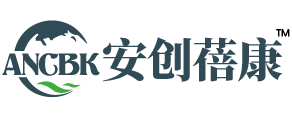

 400-877-8889
400-877-8889
 Follow us on WeChat
Follow us on WeChat



